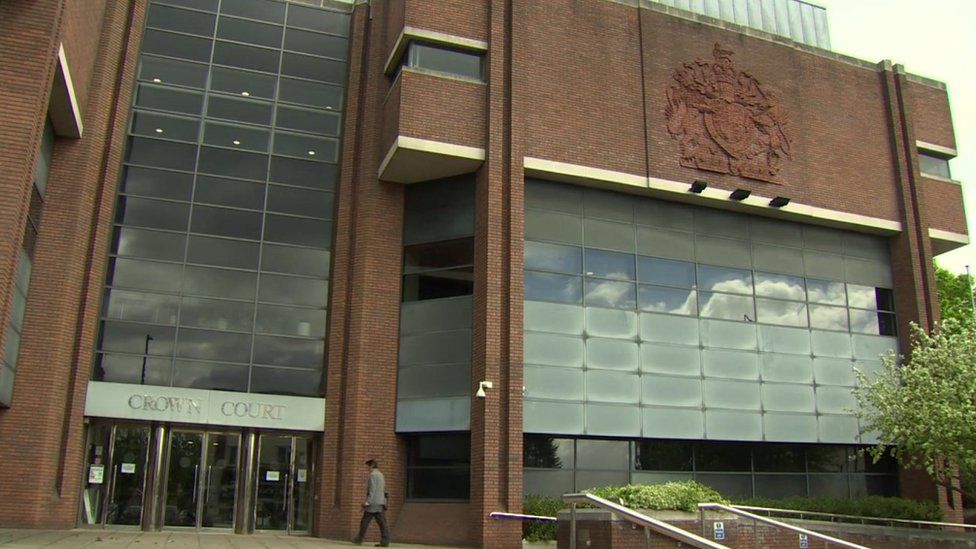Harrow Crown court closed after dangerous concrete found
- Published

A crown court has been shut for the foreseeable future after potentially dangerous concrete was found.
The Ministry of Justice says reinforced autoclaved aerated concrete (RAAC) was found at Harrow Crown Court in north-west London during improvement works.
RAAC is lighter and less durable than traditional concrete, and was used until the mid-1990s.
The Health and Safety Executive says RAAC is now beyond its lifespan and may "collapse with little or no notice".
The discovery comes after numerous public buildings across the UK were identified as being comprised of the concrete, including schools, hospitals and police stations.
The Office of Government Property, Department of Education (DfE) and Local Government Association have all shared information on the safety risks of RAAC.
Since 2018, they have been encouraging those responsible for public buildings to conduct surveys to identify the material and take steps to have it removed if found.
In a guidance document for schools, the DfE said: "Sudden failure of RAAC panels in roofs, eaves, floors, walls and cladding systems would be dangerous, and the consequences could be serious."
A Ministry of Justice spokesperson said the closure was temporary and cases would "be heard at alternative sites to minimise disruption while we address the issue as quickly as possible".
They added: "The Lord Chancellor has already announced court buildings across the country will benefit from £220m for modernisation and repairs over the next two years."
What is reinforced autoclaved aerated concrete?
RAAC has air bubbles inside it and has a limited lifespan. It was used in roofs, floors and walls between the 1950s and 1990s as a cheaper alternative to standard building concrete.
The alarm was first raised about the potential dangers of RAAC, also known as Siporex, after the roof of a primary school in Kent suddenly gave way in 2018.
A leaked email sent to Downing Street from senior officials at the DfE in December last year said many school buildings now posed a "risk to life" as a result of the presence of crumbling concrete.
The Health and Safety Executive (HSE) website warns: "If you are responsible for the management, maintenance or alteration of central and local government buildings, you should know whether your buildings contain RAAC, and act appropriately to ensure that such buildings are safe."
London's victims' commissioner Claire Waxman OBE said the closure was "desperate news for victims of crime at a time when they are already being made to wait years for their day in court".
"I've asked His Majesty's Courts and Tribunals Service to confirm how many cases are impacted, and provide urgent reassurance that all victims have been notified in good time. It's vital that disruption is kept to a minimum," she said.
"Temporary closures like this reflect poorly on our justice system, and are the direct consequence of the derelict and crumbling estate many of our court buildings in this country have been left in after more than a decade of chronic underfunding."
She added the government "must get serious about investing in our criminal justice system" so courts are in "good condition " and "can remain open to provide justice".
Follow BBC London on Facebook, Twitter and Instagram. Send your story ideas to hellobbclondon@bbc.co.uk
- Published25 July 2023
- Published21 July 2023
- Published28 June 2023
- Published19 June 2023